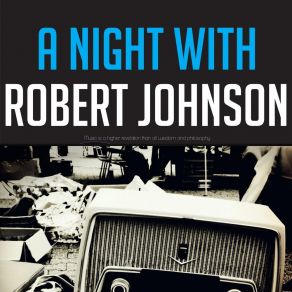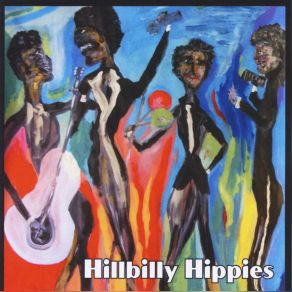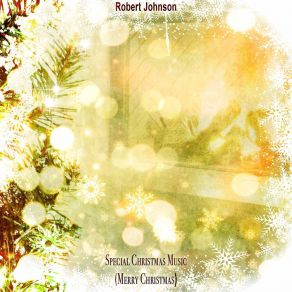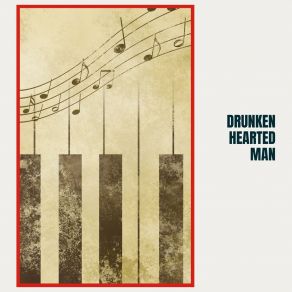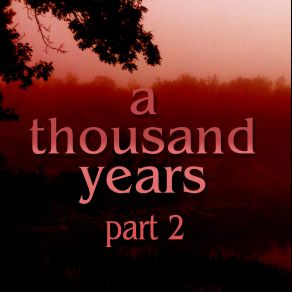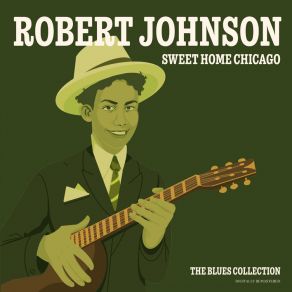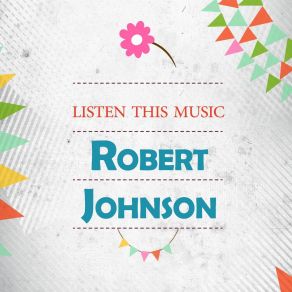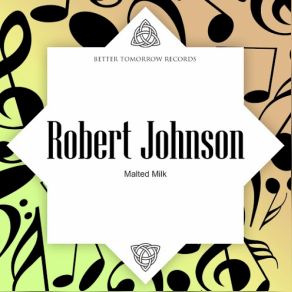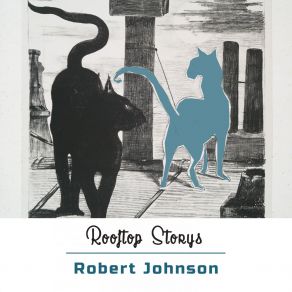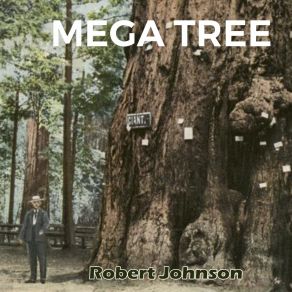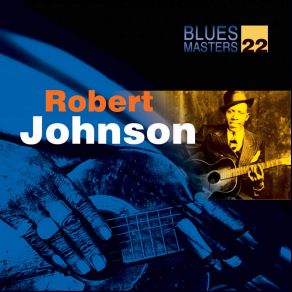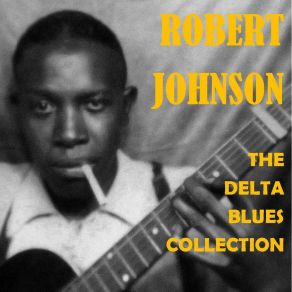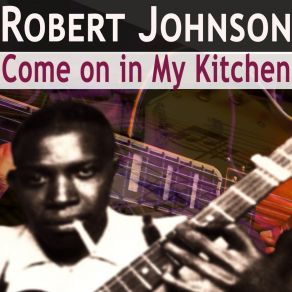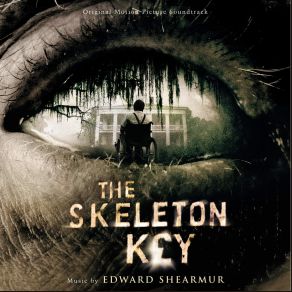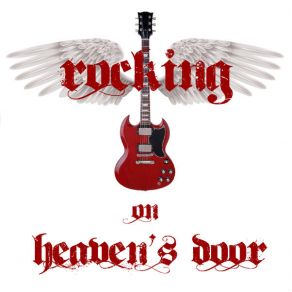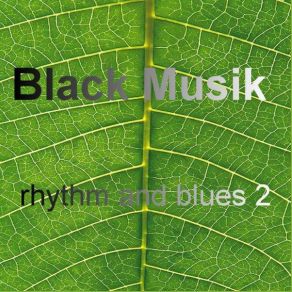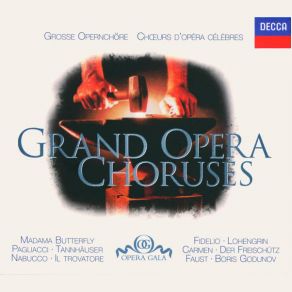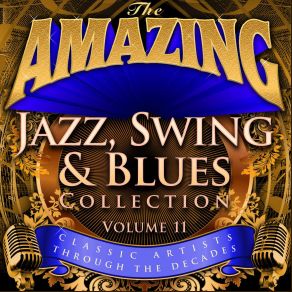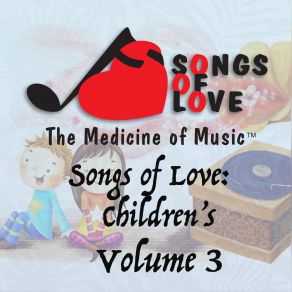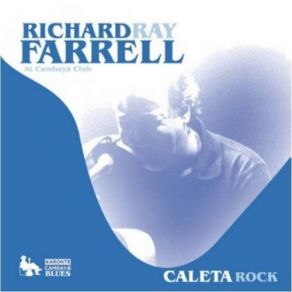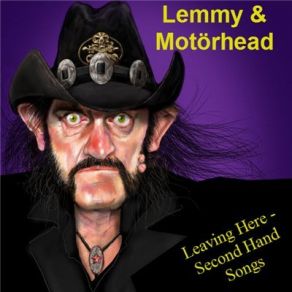Robert Johnson
Wikimp3 information about the music of Robert Johnson. On our website we have 70 albums and 70 collections of artist Robert Johnson. You can find useful information and download songs of this artist. We also know that Robert Johnson represents Blues genres.
Biography
[Edit]If the blues has a truly mythic figure, one whose story hangs over the music the way a Charlie Parker does over jazz or a Hank Williams does over country, it's Robert Johnson, certainly the most celebrated figure in the history of the blues. Of course, his legend is immensely fortified by the fact that Johnson also left behind a small legacy of recordings that are considered the emotional apex of the music itself. These recordings have not only entered the realm of blues standards ("Love in Vain," "Crossroads," "Sweet Home Chicago," "Stop Breaking Down"), but were adapted by rock & roll artists as diverse as the Rolling Stones, Steve Miller, Led Zeppelin, and Eric Clapton. While there are historical naysayers who would be more comfortable downplaying his skills and achievements (most of whom have never made a convincing case as where the source of his apocalyptic visions emanates from), Robert Johnson remains a potent force to be reckoned with. As a singer, a composer, and as a guitarist of considerable skills, he produced some of the genre's best music and the ultimate blues legend to deal with. Doomed, haunted, driven by demons, a tormented genius dead at an early age, all of these add up to making him a character of mythology who — if he hadn't actually existed — would have to be created by some biographer's overactive romantic imagination.
The legend of his life — which by now, even folks who don't know anything about the blues can cite to you chapter and verse — goes something like this: Robert Johnson was a young black man living on a plantation in rural Mississippi. Branded with a burning desire to become great blues musician, he was instructed to take his guitar to a crossroad near Dockery's plantation at midnight. There he was met by a large black man (the Devil) who took the guitar from Johnson, tuned it, and handed it back to him. Within less than a year's time, in exchange for his everlasting soul, Robert Johnson became the king of the Delta blues singers, able to play, sing, and create the greatest blues anyone had ever heard.
As success came with live performances and phonograph recordings, Johnson remained tormented, constantly haunted by nightmares of hellhounds on his trail, his pain and mental anguish finding release only in the writing and performing of his music. Just as he was to be brought to Carnegie Hall to perform in John Hammond's first Spirituals to Swing concert, the news had come from Mississippi; Robert Johnson was dead, poisoned by a jealous girlfriend while playing a jook joint. Those who were there swear he was last seen alive foaming at the mouth, crawling around on all fours, hissing and snapping at onlookers like a mad dog. His dying words (either spoken or written on a piece of scrap paper) were, "I pray that my redeemer will come and take me from my grave." He was buried in a pine box in an unmarked grave, his deal with the Devil at an end.
Of course, Johnson's influences in the real world were far more disparate than the legend suggests, no matter how many times it's been retold or embellished. As a teenage plantation worker, Johnson fooled with a harmonica a little bit, but seemingly had no major musical skills to speak of. Every attempt to sit in with local titans of the stature of Son House, Charley Patton, Willie Brown, and others brought howls of derision from the older bluesmen. Son House: "We'd all play for the Saturday night balls, and there'd be this little boy hanging around. That was Robert Johnson. He blew a harmonica then, and he was pretty good at that, but he wanted to play a guitar. He'd sit at our feet and play during the breaks and such another racket you'd never heard." He married young and left Robinsonville, wandering the Delta and using Hazelhurst as base, determined to become a full-time professional musician after his first wife died during childbirth. Johnson returned to Robinsonville a few years later and he encountered House and Willie Brown at a juke joint in Banks, MS; according to House, "When he finished all our mouths were standing open. I said, 'Well, ain't that fast! He's gone now!'" To a man, there was only one explanation as how Johnson had gotten that good, that fast; he had sold his soul to the Devil.
But Johnson's skills were acquired in a far more conventional manner, born more of a concentrated Christian work ethic than a Faustian bargain with old Scratch. He idolized the Delta recording star Lonnie Johnson — sometimes introducing himself to newcomers as "Robert Lonnie, one of the Johnson brothers" — and the music of Scrapper Blackwell, Skip James, and Kokomo Arnold were all inspirational elements that he drew his unique style from. His slide style certainly came from hours of watching local stars like Charley Patton and Son House, among others. Perhaps the biggest influence, however, came from an unrecorded bluesman named Ike Zinneman. We'll never really know what Zinneman's music sounded like (we do know from various reports that he liked to practice late at night in the local graveyard, sitting on tombstones while he strummed away) or how much of his personal muse he imparted to Johnson, if any. What is known is that after a year or so under Zinneman's tutelage, Johnson returned with an encyclopedic knowledge of his instrument, an ability to sing and play in a multiplicity of styles, and a very carefully worked-out approach to song construction, keeping his original lyrics with him in a personal digest. As an itinerant musician, playing at country suppers as well as on the street, his audience demanded someone who could play and sing everything from blues pieces to the pop and hillbilly tunes of the day. Johnson's talents could cover all of that and more. His most enduring contribution, the boogie bass line played on the bottom strings of the guitar (adapted from piano players), has become part-and-parcel of the sound most people associate with down-home blues. It is a sound so very much of a part of the music's fabric that the listener cannot imagine the styles of Jimmy Reed, Elmore James, Eddie Taylor, Lightnin' Slim, Hound Dog Taylor, or a hundred lesser lights existing without that essential component part. As his playing partner Johnny Shines put it, "Some of the things that Robert did with the guitar affected the way everybody played. He'd do rundowns and turnbacks. He'd do repeats. None of this was being done. In the early '30s, boogie on the guitar was rare, something to be heard. Because of Robert, people learned to complement theirselves, carrying their own bass as their own lead with this one instrument." While his music can certainly be put in context as part of a definable tradition, what he did with it and where he took it was another matter entirely.
Although Robert Johnson never recorded near as much as Lonnie Johnson, Charley Patton, or Blind Lemon Jefferson, he certainly traveled more than all of them put together. After his first recordings came out and "Terraplane Blues" became his signature tune (a so-called "race" record selling over three or four-thousand copies back in the early to mid-'30s was considered a hit), Johnson hit the road, playing anywhere and everywhere he could. Instilled with a seemingly unquenchable desire to experience new places and things, his wandering nature took him up and down the Delta and as far a field as St. Louis, Chicago, and Detroit (where he performed over the radio on the Elder Moten Hour), places Son House and Charley Patton had only seen in the movies, if that. But the end came at a Saturday-night dance at a juke joint in Three Forks, MS, in August of 1938. Playing with Honeyboy Edwards and Sonny Boy Williamson (Rice Miller), Johnson was given a jug of moonshine whiskey laced with either poison or lye, presumably by the husband of a woman the singer had made advances toward. He continued playing into the night until he was too sick to continue, then brought back to a boarding house in Greenwood, some 15 miles away. He lay sick for several days, successfully sweating the poison out of his system, but caught pneumonia as a result and died on August 16th. The legend was just beginning.
In the mid-'60s, Columbia Records released King of the Delta Blues Singers, the first compilation of Johnson's music and one of the earliest collections of pure country blues. Rife with liner notes full of romantic speculation, little in the way of hard information and a painting standing for a picture, this for years was the world's sole introduction to the music and the legend, doing much to promote both. A second volume — collecting up the other master takes and issuing a few of the alternates — was released in the '70s, giving fans a first-hand listen to music that had been only circulated through bootleg tapes and albums or cover versions by English rock stars. Finally in 1990 — after years of litigation — a complete two-CD box set was released with every scrap of Johnson material known to exist plus the holy grail of the blues; the publishing of the only two known photographs of the man himself. Columbia's parent company, Sony, was hoping that sales would maybe hit 20,000. The box set went on to sell over a million units, the first blues recordings ever to do so.
In the intervening years since the release of the box set, Johnson's name and likeness has become a cottage growth merchandising industry. Posters, postcards, t-shirts, guitar picks, strings, straps, and polishing cloths — all bearing either his likeness or signature (taken from his second marriage certificate) — have become available, making him the ultimate blues commodity with his image being reproduced for profit far more than any contemporary bluesman, dead or alive. Although the man himself (and his contemporaries) could never have imagined it in a million years, the music and the legend both live on.
Title: Come On In My Kitchen / Cross Road Blues (All Tracks Remastered)
Artist: Robert Johnson
Genre: Blues
Title: Robert Johnson - Vintage Cafè / Robert Johnson - Vintage Cafe
Artist: Robert Johnson
Genre: Blues
Title: I'm a Steady Rollin' Man (Original Recordings, 1936 - 1937)
Artist: Robert Johnson
Genre: Pop
Title: Sweet Home Chicago - The Blues Collection (Digitally Remastered)
Artist: Robert Johnson
Genre: Jazz
Title: The Original Masters - Centennial Edition
Artist: Robert Johnson
Genre: Blues, Jazz, Theatre/Soundtrack
Collections
Title: Up Jumped the Devil (American Devil's Song 1920-1950)
Genre: Blues
Title: Let's Get Drunk Again
Genre: Blues
Title: 101 - The Best of Vintage Blues
Genre: Electronica, Dancefloor, Dance Pop
Title: Inspiring the Rolling Stones
Genre: Blues
Title: 21 American Icons
Genre: Pop
Title: The Boardwalk Empire Blues
Genre: Blues
Title: Blues!
Genre: Blues, World Music
Title: A Night out at the Blues Bar, Vol. 4
Genre: Blues
Title: American Legacy: Essential Blues, Folk & Country Music
Genre: Blues
Title: The Very Best of Blues Guitar, Vol. 2
Genre: Blues
Title: The Home of Blues, Vol. 2
Genre: Blues
Title: The George Mitchell Collection
Genre: Blues
Title: Baby Please Don't Go! 30 Essential Blues Songs
Genre: Blues
Title: Blues Anthems
Genre: Blues
Title: The Blues That Built America
Genre: Blues
Title: A Brief History of the Blues
Genre: Blues
Title: Smash Blues Hits Vol 2
Genre: Blues
Title: Blues Masterpieces, Vol. 6
Genre: Blues
Title: Old Time Blues
Genre: Blues
Title: Roots, Volume 2 the 1930's
Genre: Rock, Songwriter/Lyricist
Title: 100 Proof Drinking Songs
Genre: Country
Title: Country Blues Bottleneck Guitar Classics 1926-1937
Genre: Rock
Title: Midnight Steppers
Genre: Blues
Title: Big Road Blues
Genre: Blues
Title: Early Blues Brothers
Genre: Blues
Title: The Sounds of Louisiana Blues
Genre: Blues
Title: Vintage Rural Blues
Genre: Blues
Title: Cool Blues
Genre: Blues
Title: Rocking On Heaven's Door
Genre: Rock
Title: Reggae Reggae, Vol. 2
Genre: Reggae
Title: Essential Beethoven
Genre:
Title: My Baby Left Town
Genre: Blues
Title: 60 All Time Greatest Mozart Classics
Genre: Alternative
Title: Folk, Gospel & Blues: Will the Circle Be Unbroken
Genre: Blues
Title: A Classical Summer
Genre:
Title: Roll and Tumble Blues
Genre: Blues
Title: Southern Blues, Vol. 1
Genre: Blues
Title: Music Trends - Blues Busters (Volume Two)
Genre: Blues
Title: Blues, Swing and All That Jazz, Vol. 4
Genre: Pop
Title: Action On the Dancefloor - House Music Vol. 05
Genre: House, Dancefloor, Dance Pop
Title: Easy Listening Male Voices 3
Genre: Pop
Title: Black Music - Rhythm and Blues Vol. 1
Genre: Hip Hop/R&B, Soul
Title: Tekno Runner, Vol. 3
Genre: Electronica, Dancefloor, Dance Pop
Title: The Great Blues Pioneers
Genre: Blues
Title: Black Music - Rhythm and Blues Vol. 2
Genre: Hip Hop/R&B, Soul
Title: Chillin' in the Name of...Blues
Genre: Blues
Title: A Woman's Blues
Genre: Blues
Title: The Very Best of Blues
Genre: Blues
Title: Vintage Delta Sounds
Title: The Definitive Blues Collection, Vol. 12
Genre: Hip Hop/R&B, Soul, Blues
Title: Good Houserockin'
Genre: Blues
Title: O Brother - The Search Continues
Genre: Songwriter/Lyricist
Title: The Greatest In Country Blues
Genre: Blues
Title: Uncle Sam's Halloween Faves
Genre: Punk, Alternative
Title: Classical Wedding Favourites
Genre:
Title: Early Blues Pioneers
Genre: World Music
Title: The World Of... Blues Power!
Featuring albums
Title: Rough Guide To Blind Lemon Jefferson
Artist: Blind Lemon Jefferson
Genre: Blues, Country, Songwriter/Lyricist, Acoustic
Title: DJ Yoda's How to Cut and Paste: The Thirties Edition
Artist: DJ Yoda
Genre: Hip Hop/R&B, Rap, Jazz, Rock, New Wave, Dancefloor, Pop, Dance Pop, Alternative
Title: A Portait of Elgar
Artist: English String Orchestra, English Symphony Orchestra, William Boughton, Michael Bochmann
Genre:
Title: The Story of Mozart in Words and Music
Artist: Günther Kehr / Gunther Kehr, Mainz Chamber Orchestra, Arthur Hannes
Genre:
Title: Mozart: Die Zauberflote
Artist: The Monteverdi Choir, John Eliot Gardiner, English Baroque Soloists
Genre: Opera
Title: Legends of the Blues, Vol. 1
Artist: Louis Armstrong, Louis Armstrong Orchestra
Title: How To Cut and Paste- The Thirties Edition
Artist: DJ Yoda
Genre: Electronica, Hip Hop/R&B, Rap, Dancefloor
Title: The Smoky Bar Blues Club, Pt. 2 (Blues from a Smoky Bar)
Artist: Various Artists
Genre: Blues
Title: Down Home and Street Corner Blues: 30 Legendary Blues Songs
Artist: Various Artists
Genre: Blues
Title: There Was a Man Lived in the Moon: Nursery Rhymes and Children's Songs
Artist: Teddy Tahu Rhodes, Jane Sheldon
Genre: Kids
Title: Jazz Legends: The Masterpieces (A Collection of the Jazz Hits)
Artist: Various Artists
Genre: Jazz





